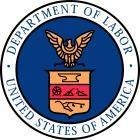In 1979, Minnesota native Leroy Namen joined the U.S. Navy and served as a boiler repairman while stationed in the Philippines. He left the service in 1983, returned home to Minnesota and started to drink heavily. He quickly fell into homelessness, and would remain without a permanent address for the next 15 years.
Mr. Namen, on “one sunny day” in 1998 as he describes it, was approached on the street by an outreach worker who offered him the chance to receive treatment for alcoholism, housing and support from the Minnesota Assistance Council for Veterans (MACV).
That chance meeting changed his life.
Mr. Namen moved into a transitional housing program and received therapy and job assistance. He enhanced his boiler repair skills, eventually obtained his boiler’s license, and was soon hired full-time at the local veterans’ affairs medical center.
Today, he is the center’s supervisor, serves as an advisor to MACV, and is helping other veterans navigate a path to independence and stability.
I’ll meet Mr. Namen today, when I visit the MACV program, which, for more than 20 years, has been serving homeless veterans by providing housing, legal and employment services. Approximately 950 veterans, representing more than 70 Minnesota counties, were served by the council last year.
As many as 4,000 veterans are homeless in Minnesota or at risk of becoming homeless sometime during the year. Nationally, 61 percent of homeless veterans are between the ages of 35 and 54. And while 96 percent of homeless veterans are male, the percentage of homeless female veterans is increasing at an alarming rate.
There is a critical need for effective treatment and support for veterans and we have a collective obligation to do everything in our power to help them. And as the nation’s Secretary of Labor, helping veterans is one of my highest priorities.
I sit on the U.S. Interagency Council on Homelessness, and I chaired the body last year. We’ve made significant progress reducing the number of homeless veterans. Fewer than 60,000 veterans are now believed to be homeless on any given night. That’s a decline of more than 90,000 from four years ago.
But we are still not where we need to be.
Housing is step one. We know once veterans have their basic needs met—a roof over their head and some food on the table—they are more likely to seek treatment for medical issues, substance abuse, and mental health challenges.
The Department of Labor continues to provide veterans with transition assistance, employment and job training services. Recently, we awarded more than $30 million in grants aimed at providing homeless veterans with job training to help them succeed in civilian careers, and MACV is one of the recipients.
Last year, I introduced the Veterans Gold Card, which allows post-9/11 veterans to get six months of job counseling and personalized case management services at American Job Centers—our nationwide network of more than 3,000 local offices that provide job counseling, training, and job search assistance to job-seekers.
We’ve also developed a Veterans Job Bank to better match the skills and experience of veterans with employers that need them. And we created My Next Move for Veterans, an online resource to help veterans translate their military skills into civilian jobs. Surely a soldier who can drive a tanker on the streets of Baghdad, can drive an ambulance here at home.
No soldier should ever have to come home to homelessness. And we all have a stake in fulfilling our obligation to support veterans, like Leroy Namen, who have sacrificed so much for us.


 />i
/>i

